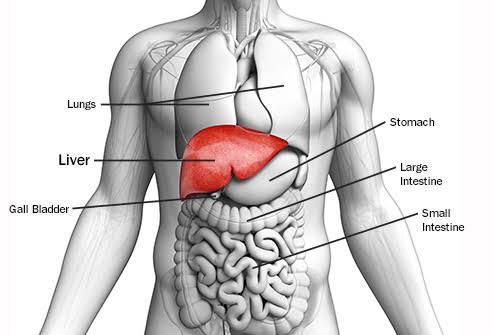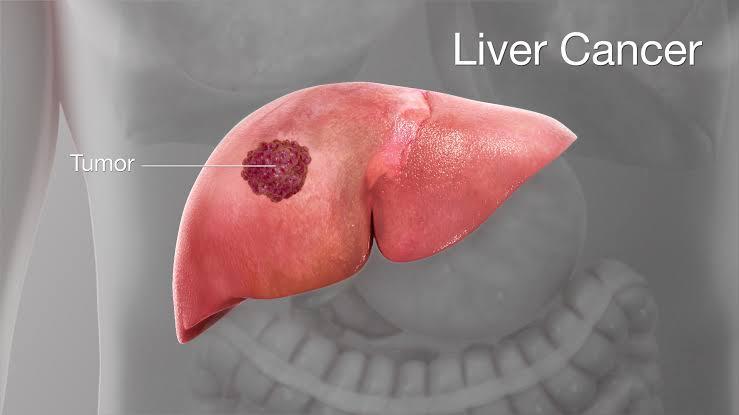Liver cancer & it’s treatment in India

|
Liver cancer is a developing reason for deaths in India and all over the world. Like all cancers, this is also caused due to uneven rise in cell generation within the liver. Tumors are formed when more cells are produced than required. Tumors can be benign or malignant. The benign tumors are comparatively harmless as they can be removed from the system. But, malignant tumors are difficult to manage and can grow into cancer. These tumors replicate at a quick pace and spread to other body parts by means of blood and lymph nodes.
As we know, the liver is the biggest internal organ of our body and it is responsible for more than 500 operations in our body which means that it is a very crucial organ of our body.
According to a recent study about liver cancer and its treatment in India, there are around 3-5 cases of liver cancer patients per 100000 people, so approximately 30000-50000 people are affected by liver cancer per year in India. So a lot of people are being affected by this deadly disease. Also there is a constant rise in demand for liver cancer treatment in India as the number of patients affected by liver cancer are also increasing.
A health portal named ClinicSpots, provides a comprehensive list of the best cancer hospital in Delhi for getting treatment for liver cancer if you are a medical tourist. To back this, the hospitals in Delhi have some of the best oncologists. Hospitals in India are well equipment which are at par with the hospitals in developed countries like the USA, UK and so on. Some of the best liver cancer treatment hospital in India and specifically in Delhi are – AIIMS, DHRC, Medanta Hospital, Wockhardt Hospitals, Fortis Healthcare Hospitals, Blk Superspeciality Hospital and so on.
There is a pool of best oncologists in India, who are highly experienced and qualified. Most of the doctor’s here study and graduate abroad and return back to the country upon gaining high level of training in oncology. You can also find a detailed list of cancer hospitals in Mumbai on ClinicSpots, if you plan to get the treatment done in Mumbai, as it is the next popular destination for medical tourists.

The different types of liver cancer are:
1. Hepatocellular Carcinoma(HCC): HCC is a very common type of liver cancer. It occurs because of hepatitis B or C or cirrhosis of the liver that is caused due to alcohol abuse.
2. Fibrolamellar HCC: It is a very rare type of cancer and generally more responsive to treatments. This type of liver cancer is mostly found in young adults between the ages 20 to 40 in both male and female. This type of liver cancer has no connection with cirrhosis, hepatitis or alcohol abuse.
3. Cholangiocarcinoma: This type of liver cancer is found in the bile ducts of the liver that leads to intrahepatic and extrahepatic bile duct cancer. It represents for 10-20% of all liver cancers.
4. Angiosarcoma: This type of liver cancer starts in the blood vessels of the liver and spreads to other body parts. This is diagnosed at an advanced stage.
5. Secondary liver cancer: Secondary liver cancer occurs when the cancer that has originated in other parts of the body spreads to the liver.
Treatment options for liver cancer in India
The best liver cancer treatment in India include surgery, chemotherapy, radiation therapy, liver transplants, ablation procedures, and targeted drug therapy. In many cases, a combination of the above mentioned treatments are performed depending on the patient. Let’s take a look at these treatments:
Transplant options: In this treatment, the entire liver is replaced with a healthy liver through the surgery process. In some cases, the diseased liver of the patient is replaced with a healthy liver from a donor who has died recently. Before replacing the liver, the patient has to go through a number of tests to determine if the patient is fit for the transplant. After this, if the patient is fit then the name of the patient is enrolled in the waiting this for the liver transplant. This method of liver transplant is known as deceased donor liver transplant (DDLT).
Living Donor Liver Transplantation (LDLT): In this case, the patient’s liver receives a part of liver from a family or a friend. Patient’s liver which is not working is replaced with a healthy liver, which then eventually grows to its normal size. This option is utilized when the patient needs immediate transplantation and a DDLT option is not available.
Non-Transplant Options: Non- transplant options include Radiofrequency Ablation and Partial Hepatectomy.
1) Radiofrequency Ablation: It is a surgical option which is used to kill cancerous cells. This procedure is performed using local anesthesia. It is a minimally invasive medical procedure which starts with a needle through the skin into a liver tumor. Through the probe, a high-frequency electrical current is passed through the needle which creates heat to destroy the cancer cells. This treatment has a very high rate of success.
2) Partial Hepatectomy: In this treatment, an entire part of the liver is removed, from a small part to the entire lobe.
Chemotherapy: Chemotherapy is also known as “chemical treatment”. It is one of the best treatments to treat cancer. The anti-cancer drugs used in chemotherapy not only slow down the growth of cancer cells but also, stop the growth of cancer cells. Sometimes chemotherapy is used alone for cancer treatment but usually, it is combined with other treatments like radiation therapy, surgery, etc.
Radiation Therapy: Radiation is one the most crucial treatments used in India for cancer. This therapy uses high energy radio waves such as: gamma rays, electron beams or protons; to destroy cancerous cells and prevent them from growing.
Now let's discuss the symptoms of liver cancer
At first, the liver cancer symptoms probably won't be noticeable. The patient will begin seeing some symptoms after the liver starts to swell. However, there can be other reasons for the swelling in the liver. We have listed some symptoms below:
- Unexplained weight loss
- Loss of appetite
- Fatigue
- Jaundice
- Fever
- Swelling
- Vomiting
- Itching
- An enlarged liver
Causes of Liver Cancer:
- Cirrhosis is where the liver cells are harmed and replaced with scar tissues. Individuals with this condition have a higher chance of liver cancer.
- NASH or non-alcoholic steatohepatitis.
- Family history can also be the reason in some cases.
- Hepatitis B infection
- Alcoholism and smoking
- Inherited liver diseases: Liver diseases like Wilson's malady and hemochromatosis increase the chances of liver cancer in people.
- Diabetes. Individuals suffering from diabetes have a higher chance of liver cancer individuals who don't have diabetes.
- Aflatoxins are a substance made by fungus and are found in groundnuts, corn, nuts, soybeans, and peanuts. Overeating of these substances may lead to a tumor in the liver.
- Overweight leads to more risk of liver cancer.
How can you prevent liver cancer:
- You can reduce your chances of getting liver cancer by receiving the hepatitis B vaccine that provides protection over 90 percent for both adults and children.
-
There is currently no vaccine available for hepatitis C, but you can reduce your chances of getting infected by following these conditions:
1) Know the health status of any sexual partner: Try not to participate in unprotected sex except if you're sure your partner isn't infected with HBV, HCV or some other sexually transmitted disease. If you are not sure about the health status of your partner, it is recommended to use a condom every time you have sex to keep you and your partner safe from sexually transmitted diseases.
2) Try not to utilize intravenous (IV) drugs: If you do, use a clean needle. Reduce your danger of HCV by not using illegal drugs. In any case, if you have to do it, ensure the needle you use is sterile, and don't share it. Paraphernalia, which is a contaminated drug, is a common reason for hepatitis C infection.
3) Look for safe, clean shops while getting a tattoo or piercing: Needles that may not be appropriately sterilized can spread the hepatitis C infection. Before getting a tattoo, take a look at the shops in your area and get some information about their safety practices. If the employees of the shop are avoiding or not answering your questions properly, accept that as a sign that the facility isn't right for you.
-
Reduce risk of cirrhosis: You can reduce your risk of cirrhosis by:
1) Maintain a healthy weight: If you’re currently overweight, try to reduce your weight by choosing a healthy diet and adding exercise to your daily routine. Try to being your body mass index to a normal level. I know losing weight is difficult, but aim to lose weight slowly- 0.5 to 1 kg each week is an achievable target.
2) Reducing your alcohol intake: If you drink alcohol, limit the amount you drink. For men, it should be two drinks a day and for women, it should be 1 drink a day.
3) Chemical safety: When you use chemicals at home or work, make sure to follow the instructions properly.
When it comes to cancer, be it liver cancer or any other type of cancer, you should start by consulting your family doctor. Delaying going to your family doctor or general practitioner may decrease your chances of survival. If advised by your oncologist, regular screening also helps in detecting the cancer.




















Recent Comments